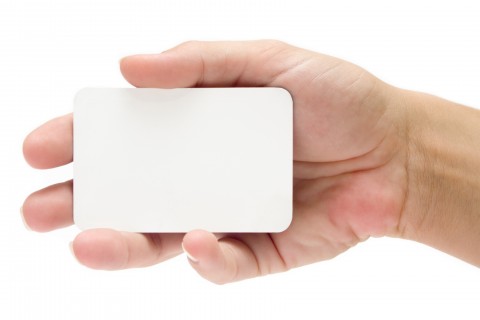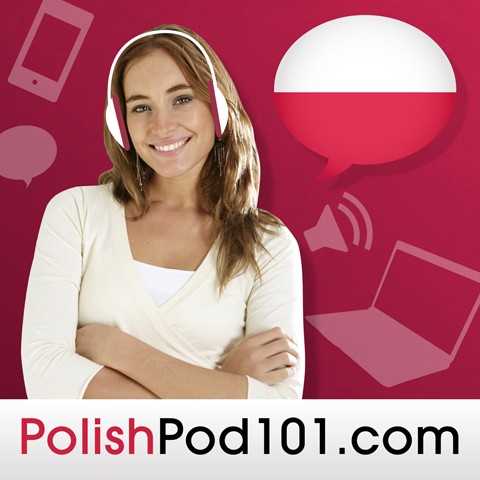
Conversation skills are arguably the most important skills in a language. What’s the point of speaking Polish, if you can’t communicate with Polish people? Naturally, some people study languages for specific purposes, such as being able to understand books, but most mortals simply want to communicate with others in their private and professional life. In this blog post, you’ll learn how to improve your Polish conversation skills.
 Table of Contents
Table of Contents
- Prepare Your Profile in Polish
- Learn Polish Language Reactions
- Learn Polish Filler Words
- Learn Common Questions and Answers
- Learn Conversation Starters
- How to Improve Polish Conversation Skills
- Final Thoughts
1. Prepare Your Profile in Polish

The best way of boosting your conversation skills in Polish is to prepare your profile in Polish. What’s a profile? It’s a cheat sheet with the most important details about you. By learning these details by heart, you’ll make your life easier, and you’ll gain confidence when meeting new Polish people.
Here are some important phrases you should include on your cheat sheet:
- Your name and surname
Jestem Anton. – I’m Anton.
Mam na imię Anton. – My name is Anton.
Nazywam się Anton Zaripov. – I’m Anton Zaripov.
The last form is used for name and surname together.
Introducing yourself is important, but so is being able to ask someone else, “What’s your name?” in Polish.
- Age
Mam [x] lat. – I’m [x] years old.
Please note that the forms change depending on the number of years as follows:
1 rok – one year
Ex. Mój syn ma rok/roczek. – the second form is diminutive
2,3,4 lata – 2,3,4 years
Ex. Moja córka ma 2/3/4 lata.
5-21 lat – 5-21 years
Ola ma 20 lat, a jej chłopak 21 lat. – Ola is 20 years old and her boyfriend 21 years old.
After that, it’s the second number that influences the form, for instance:
22 lata – 22 years
BUT
25 lat – 25 years - Country
There are two main ways of talking about one’s country of origin in Polish:
Pochodzę z [kraj]. – I come from Poland.
Pochodzę z Włoch. – I come from Italy.
Pochodzę z Maroka. – I come from Morocco.
Jestem [narodowość]. – I’m [nationality].
Jestem Włochem. – I’m Italian.
Jestem Marokańczykiem. – I’m Moroccan. - Profession
Jestem [zawód] – I’m [profession]
In both examples below, the first form is for a male speaker, and the second one is for a female speaker.
Jestem policjantem/policjantką. – I’m a police officer.
Jestem dziennikarzem/dziennikarką. – I’m a journalist.
Do you need more vocabulary for professions in Polish? Click on the link to check out a lesson about it on our platform.
- Preferences
Lubię chodzić do kina i restauracji. – I like going to the cinema and restaurants.
Lubię czytać książki. – I like reading books.
Now, you have all the elements you need to prepare a cheat sheet. You should write sentences that are true for you on a piece of paper and practice introducing yourself whenever you get the chance.
2. Learn Polish Language Reactions

Learning natural language reactions is a very important part of working on your Polish conversation skills. That’s because they make you sound much more natural when you speak. They also help you understand the emotional value of what’s being said better.
In the Polish language, you have many such expressions. Have a look at some of them below:
- Expressing positive emotions
Super! / Ekstra! / Rewelacja! – Awesome!
A: Dostałem/Dostałam nową pracę. – I’ve got a new job. (the forms are male and female, respectively)
B: Super! / Ekstra! / Rewelacja!
(To) jest naprawdę super / ekstra! – “It’s really cool!”
A: Patrz, jaki mam fajny nowy telefon. – Look at my new, cool phone.
B: (On) jest naprawdę super / ekstra! – It’s really cool!
Speaking of positive emotions, do you know how to say “Happy Anniversary!” in Polish?
- Expressing negative reactions:
Masakra! / Koszmar! – What a nightmare!
A: Mój sąsiad ciągle słucha muzyki na cały regulator! – My neighbor always listens to music at full volume.
B: Masakra! / Koszmar! – What a nightmare! - Expressing disbelief and/or surprise:
Serio? / Naprawdę? / No co ty? – Really?
A: Ten kurs kosztuje ponad 500 złotych! – This course costs more than 500 PLN!
B: Serio? / Naprawdę? / No co ty? – Really?
Nie żartuj! / Nie rób sobie jaj! / Bez jaj! – “You can’t be serious!”
Please note that the first expression is neutral. The other two could be considered inappropriate by some people.
A: Odwołali nasz lot. – They’ve canceled our flight.
B: Nie żartuj. / Nie rób sobie jaj! / Bez jaj!
O matko! / O jezu! – “Oh my goodness!”
These expressions are very popular but could be considered inappropriate by some people, including very religious people.
A: Paweł miał wypadek. – Paweł’s had an accident.
B: O matko! / O jezu! – “Oh my goodness!”
Wow! / Łał! – Wow!
A: A teraz zgadnij, ile ona ma lat. – Now, guess, how old she is.
B: Nie wiem, 18? – I don’t know. 18?
A: 25! – 25!
B: Wow, wygląda na dużo młodszą. – Wow, she looks way younger.
You can find more useful expressions of this kind in our blog post about intermediate phrases.
3. Learn Polish Filler Words

Filler words are another example of very natural phrases to learn to improve your conversation skills in Polish. Just think about you speaking in your native language. Filler words come to you when you don’t know what to say, you’re looking for the right word…or just because. We’ve written a whole article about filler words, and this is just a sample:
- Hm…
Hm… sam/sama nie wiem, co na ten temat myśleć. – Hmm…I don’t know what to think about it. (spoken by a male and female speaker, respectively)
Hm… szczerze mówiąc, to się nad tym nie zastanawiałem/zastanawiałam. – Umm…Honestly, I’ve never thought about it. (said by a male and female speaker, respectively) - No – similar to “well”
No dobra, niech już będzie. – Well, okay, let’s agree on this.
No nie wiem, (no) skąd mam wiedzieć? – Well, I don’t know, how am I supposed to know?
As you can see, “no” can be repeated. It doesn’t add any meaning, it’s just a mannerism. - Wiesz and no wiesz – you know
Mamy teraz własny dom, wiesz? – We have our own house now, you know?
No wiesz, to nie jest do końca prawda. – You know, it’s not entirely true. - Właśnie – “exactly”, “precisely”
Właśnie o to mi chodzi! – This is precisely what I mean.
Właśnie w tym rzecz. – That’s the thing. - Ten and no ten – a filler practically impossible to translate, used when a word is missing and a speaker is trying to buy time
No i wtedy patrzę, a tam ten, Święty Mikołaj! – And then I look and I see there, what do you call him, Santa Claus.
Kup w sklepie, no ten, klej. – Please buy some… glue in the shop.
It’s not easy to learn the natural use of these phrases because they depend heavily on the context. How to improve Polish conversation skills when it comes to fillers? Listen to as much Polish as you can. It’s the only way to acquire these skills. You can start doing that with our lesson library.
4. Learn Common Questions and Answers

Learning common questions and answers may be the best way to improve Polish conversation skills. Here are some examples to memorize:
- Skąd jesteś? – Where are you from?
Skąd pochodzisz? – Where do you come from?
Jestem / Pochodzę z Niemiec. – I am / come from Germany.
Jestem / Pochodzę z Hiszpanii. – I am / come from Spain. - Ile masz lat? – How old are you?
Mam 22 lata. – I’m 22 years old.
Mam 51 lat. – I’m 51 years old. - Jak się masz? Co słychać? – How are you?
U mnie wszystko okej / w porządku. – I’m all good.
Bywało lepiej. – I’ve been better. - Jak nauczyłeś/nauczyłaś się (tak dobrze) mówić po angielsku? – How did you learn to speak (so well) in English?
The first form is used by male speakers, and the second by female speakers.
Na kursach językowych. – During language courses.
Do you know how to ask the question “Do you speak Polish?” and similar? Head straight to our lesson to acquire this skill. - Czemu uczysz się włoskiego? – Why are you learning Italian?
Dla przyjemności. – For pleasure.
Włoski jest mi potrzebny do pracy. – I need Italian for work.
Mój partner jest Włochem. – My partner is Italian.
These are only some sample dialogues that can help you with your Polish. Don’t ask yourself anymore, “How to improve your Polish speaking skills?”. Instead, visit our blog post full of such expressions.
5. Learn Conversation Starters

When you meet new people and have to communicate in a new language, it can be very intimidating. Learning conversation starters is another way of boosting your conversation skills in Polish and avoiding the stress of not knowing what to say. Here are some useful conversation starters:
- Jak poznałeś/poznałaś [name]? – How did you meet [name]?
The first form is masculine, and the second feminine. - Czy było łatwo znaleźć to miejsce? – Was it easy for you to find this place?
- Czym się zajmujesz (zawodowo)? – What do you do for a living?
- Od jak dawna tu pracujesz/studiujesz? – How long have you been working/studying here?
- Wyglądasz super! Podoba mi się twoja fryzura / twój styl / twoje ubranie. – You look great! I like your hair/style/clothes.
- Jaki jest twój ulubiony [rzeczownik rodzaju męskiego]? – What’s your favourite [masculine noun]?
Jaki jest twój ulubiony film? – What’s your favorite movie?
Jaka jest twoja ulubiona [rzeczownik rodzaju żeńskiego]? – What’s your favourite [feminine noun]?
Jaka jest twoja ulubiona pora roku? – What’s your favourite season?
Jakie jest twoje ulubione [rzeczownik rodzaju nijakiego]? – What’s your favourite [neuter noun]?
Jakie jest twoje ulubione danie? – What’s your favourite dish?
You can learn how to speak about likes and dislikes with our lesson “I like beer”.
These are just some of the conversation starters that can help you with your Polish speaking skills. To get even more help in this respect, read our blog post (link) about Polish conversation starters.
6. How to Improve Polish Conversation Skills

The best way to improve Polish conversation skills is to practice the language whenever an opportunity presents itself and… to look for such opportunities when they don’t. Here are some tips that can help you further:
- Join PolishPod101 and get access to countless listening resources and even to a private teacher on one of our subscription plans
- Find language exchange partners online or in person
- Talk to yourself by repeating new words and phrases
- Find online communities, such as forums, to practice
- Memorize words and phrases in context rather than on their own
7. Final Thoughts
Everyone would like to know the best way to improve Polish conversation skills. We have shown you not one but many ways of doing it. Getting a cheat sheet and learning conversation starters, as well as other things such as fillers, will help you tremendously with your language skills.
Are you still asking yourself how to improve your Polish speaking skills? Consider joining PolishPod101! On our platform, you’ll find recordings and vocabulary to help you in real-life conversations. Our recordings are prepared by native speakers to help you learn the kind of Polish that’s really spoken in Poland.










